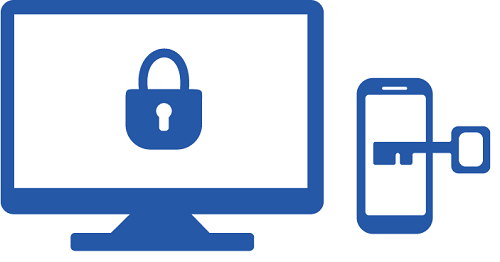
Year in Review
KU IT thanks our many campus partners for their support and assistance throughout the year.
Letter from the CIO
The University of Kansas welcomed most students back to campus in 2021, returning some sense of normalcy to campus. Still, the lingering COVID-19 pandemic meant that a number of faculty, students and staff continued to teach, learn and work remotely. Throughout the year, KU Information Technology focused on providing outstanding services and support, whether a customer was on campus or thousands of miles away.
In addition to navigating the shifting landscape of the pandemic, KU IT began one of the most significant projects in recent memory. We announced in February that KU would adopt Canvas as its learning management system.
In addition to improving our academic services with Canvas, we also took significant steps — both public and behind the scenes — to improve the security of our systems and data. And, we expanded and formalized efforts to engage campus customers and partners in helping guide our efforts through the creation of Service Experience Councils.
In 2022, we will continue to engage campus stakeholders and focus on shoring up our campus infrastructure, strengthening IT security, providing outstanding technology support and strategically investing in new services to help KU build healthy communities and make discoveries that will change the world.
Rock Chalk!
Mary Walsh
Chief Information Officer
The University of Kansas

Key Projects in 2021
Introducing Canvas to Campus
KU embarked on a multi-year journey in February to enhance how Jayhawks teach and learn by migrating our campuswide learning management system from Blackboard to Canvas. This change brings KU a modern, leading-edge learning management system used by 63 percent of R1 institutions, 68 percent of AAU institutions and more than half of Big 12 schools. 
In 2020, Blackboard announced it would no longer support our current on-campus platform. This major announcement offered the right time to evaluate our options, and KU’s Academic Systems Steering Committee recommended that KU adopt Canvas.
KU IT created a transition plan that provides instructors time to migrate their courses before our Blackboard contract ends. In fall 2021, 38% of KU courses using a learning management system had been migrated to Canvas.
KU IT BY THE NUMBERS
IT Customer Service Contacts
Email - 17,563
Phone - 15,684
Self-service - 630
Voicemail - 604
Chat - 559
Walk-in - 450
Misc. - 94

CMS Sunflower for KU Websites
KU IT continued working with campus units this year to migrate their websites to our new CMS Sunflower platform. In partnership with KU Marketing & Communications in 2020, we developed and launched the CMS Sunflower platform to replace our previous Drupal 7 platform.
As of December, more than 220 new or migrated KU websites had been created and launched in CMS Sunflower. An additional 242 websites were in the process of being migrated or created.
Ally for Accessibility
We introduced Ally this year, a new solution to help instructors and website owners make their content more accessible and flexible.
Ally works in two ways:
- Evaluates content in Canvas, Blackboard and on websites to identify accessibility issues, and guides instructors and website owners in making content accessible.
- Automatically generates alternative formats of course and web content and makes them available for download.
![]()
Beginning with the fall semester, Ally for LMS was available in Canvas and Blackboard, and on CMS Sunflower websites. As an institution, KU is committed to making all content accessible in order to create an equitable experience for everyone. Ally for LMS and Ally for Web help us do that both in our courses and on our websites.
TRAINING BY THE NUMBERS
HR/Pay Upgrade
KU IT worked in partnership with Human Resource Management to upgrade the HR/Pay system in September. The system upgrade brought a cleaner, fresher look and enhanced the usability of the system. The new interface uses tiles for accessing information, rather than the menu navigation structure in the old system. The upgrade also improved the mobile experience, as many of the supervisor and employee pages related to time and absence will resize on mobile devices.
Service Experience Councils Formalize Campus Engagement
KU IT began creating Service Experience Councils this year to ensure campus representatives have a direct voice in developing the future of core services we provide. The new Service Experience Councils provide additional opportunity for KU IT to hear and respond to campus technology needs. Six councils will eventually be formed with campus subject matter experts who will collaborate with KU IT in guiding the future direction of specific services. Membership also will include KU IT staff who support specific services. All of the Service Experience Councils will make recommendations and report outcomes to an IT Strategic Council, which is responsible for developing the overall IT strategy for the university. KU IT also began developing service level agreements (SLAs) to define and formally document the services provided by KU IT for the campus community. Visit the IT Governance website to learn more about the Service Experience Councils and SLAs.
Staff/Affiliate Deprovisioning
KU changed how long employees retain access to email and systems after they leave the university. Historically, KU’s practice has been to continue access for staff, faculty and students for 210 days after they leave. To align our practices with those of our peers as well as with security best practices, KU this year began discontinuing University Support Staff (USS), Unclassified Professional Staff (UPS) and Affiliate Employee access on their last day with the university.
Service Uptime Metrics
We work hard to make sure our systems and services are reliable and available at all times. The percentage of time key services and systems were available in 2021 is shown in the chart below.
| Service/System | Availability |
|---|---|
| Enroll & Pay | 99.95% |
| Financials | 99.94% |
| HR/Pay | 99.97% |
| Microsoft Teams | 99.39% |
| CMS Websites | 99.70% |
| Blackboard | 99.86% |
| 99.65% |

Making KU Safer
Expanded Duo Use Protects KU Systems
Since 2019, KU employees have used Duo multifactor authentication when logging into most campus systems. Duo helps protect KU systems and data, including the personal, sensitive and confidential information of students, faculty and staff.
Protecting KU systems, data and stakeholders is a shared responsibility, which includes external partners who access KU systems with sponsored temporary accounts. In September, KU IT began requiring these partners to use Duo when logging into protected KU systems.
KU faculty and staff used Duo to log in to KU systems 3.6 million times in 2021. Duo provides strong protection but is also easy to use: 96.6% of authentication attempts by faculty and staff were successful.

New SANS IT Security Training
IT security awareness training for KU employees had a new look in 2021, as KU IT partnered with the SANS Institute, a leader in cybersecurity training. As part of National Cybersecurity Awareness Month in October, we kicked of the new training, which features 12 mini-courses that are each 2-3 minutes in length. IT security is a priority at KU, and all employees are required to complete the cybersecurity awareness training each year. The SANS training is designed to help employees protect themselves both at work and at home.
